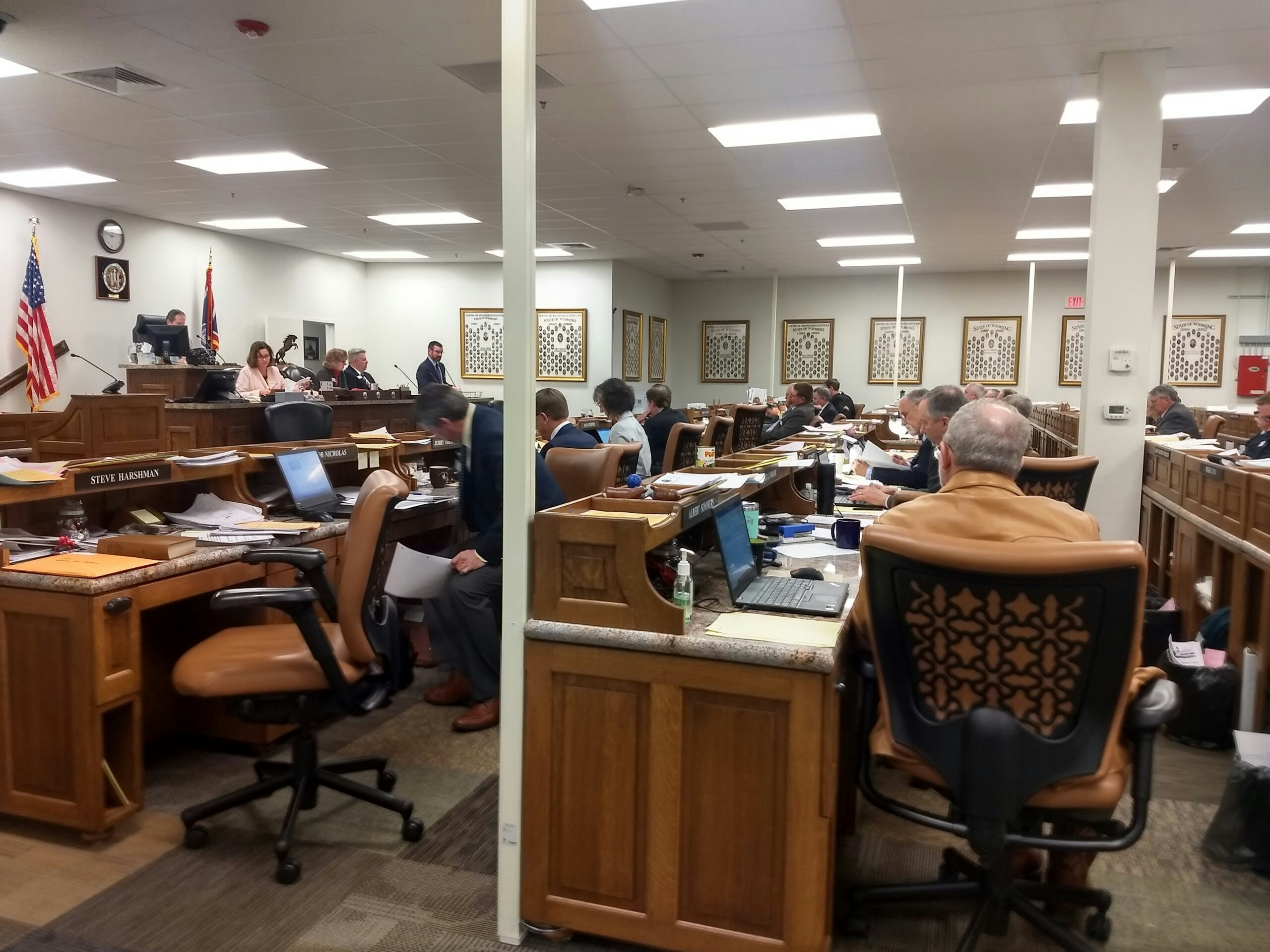A controversial measure making it a crime to interfere with the operation of “critical infrastructure” such as oil wells was one of more than two dozen to die in the Legislature on Monday without being reviewed by either the full House or Senate.
HB 10 was among 25 bills to fail to make it off of the “General File,” the list of bills reviewed by committee and sent to the House or Senate for review by the full body.
In addition, another 189 bills either died in committee or somewhere else along the legislative path as the Legislature ended the first half of its general session.
The Legislature is in the midst of what is referred to as the “crossover” portion of its session, when bills approved by the House are sent to the Senate for review and vice versa. Only after clearing both chambers will any bill become a law.
HB 10 was one of 22 bills reviewed and approved by committees and then placed on the General File in the House, only to die at the end of business Monday. In the Senate, three bills suffered the same fate.
HB 10 was defended by supporters as a measure to protect the continued operations of important facilities, while opponents maintained it was an attempt to prevent protestors from expressing concerns about such facilities.
SF 141 suffered a similar fate. That bill would have required the state Senate to confirm gubernatorial appointments to the state Judicial Nominating Commission.
More bills died on a negative vote by the “Committee of the Whole,” the official title used when either the full Senate or House gets their first review of a bill.
HB 271, making arbitration between firefighters and cities non-binding, HB 273, setting the state’s minimum wage at $8.50 per hour, and HB 284, creating a plan to regulate “video skill games,” all died in votes by the House Committee of the Whole on Monday.
SJ 4, which would have had Wyoming officially call for a convention of states to suggest new amendments to the U.S. Constitution, also died in a Committee of the Whole vote in the Senate.
As the deadline approaches for bills to move from one chamber to another, legislators tend to become more discriminating about the bills they approve for further debate, said Secretary of State Ed Buchanan, a former state representative and speaker of Wyoming’s House.
“Later in the last days of General File, the body becomes less patient and they become even more discerning,” he said in an interview during the opening days of the 2019 session. “In those last days, you’ll see some things die even though they made it up for debate in Committee of the Whole.”
In all, Wyoming’s Legislature proposed more than 500 pieces of legislation for the 2019 session. Of those, 214 died before the crossover point was reached this week — 156 in the House and 58 in the Senate.
Most of the measures died in committee, died in votes on the chamber floor or simply were not introduced for consideration.





